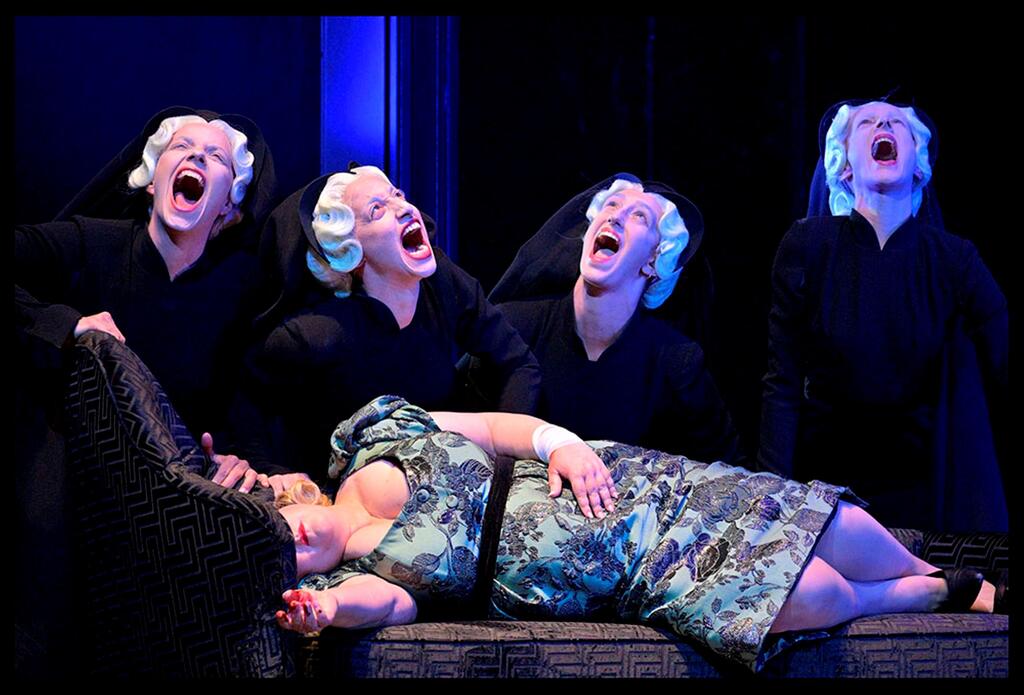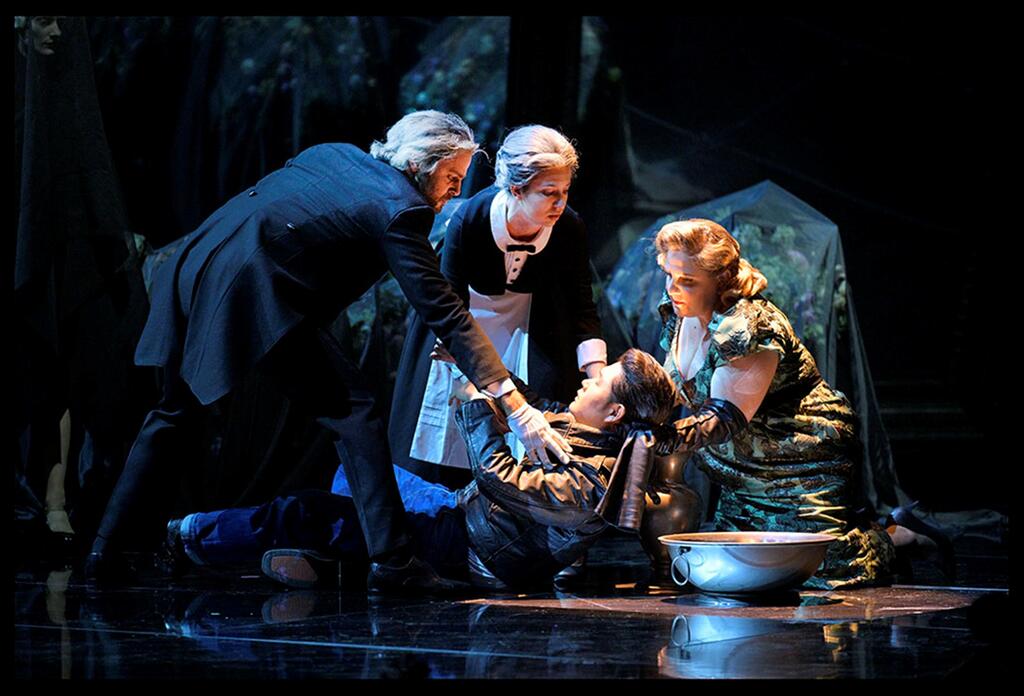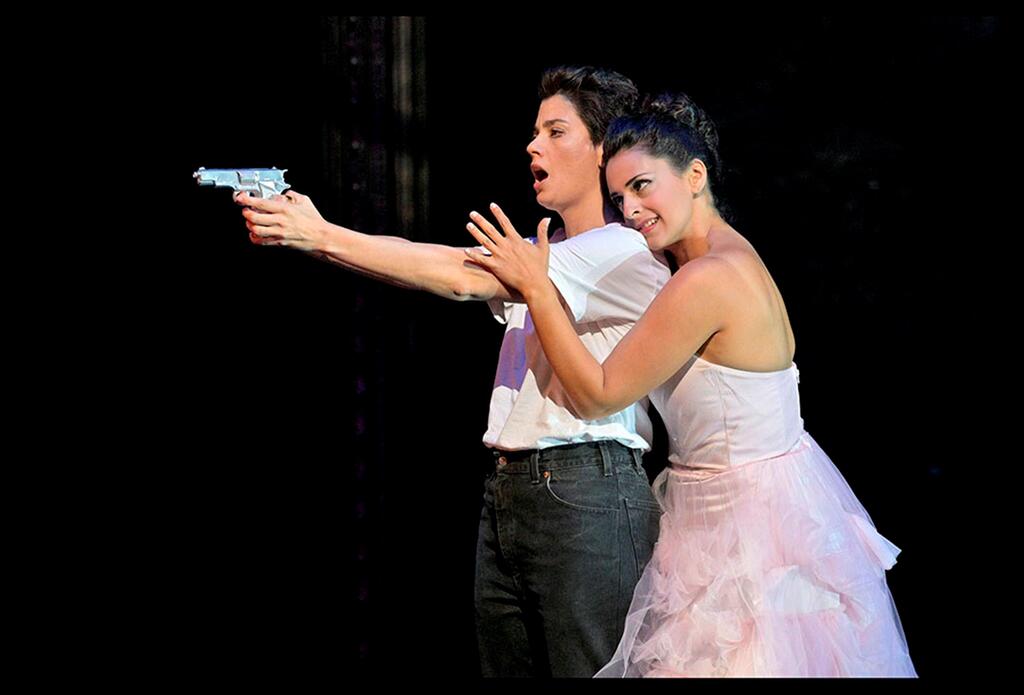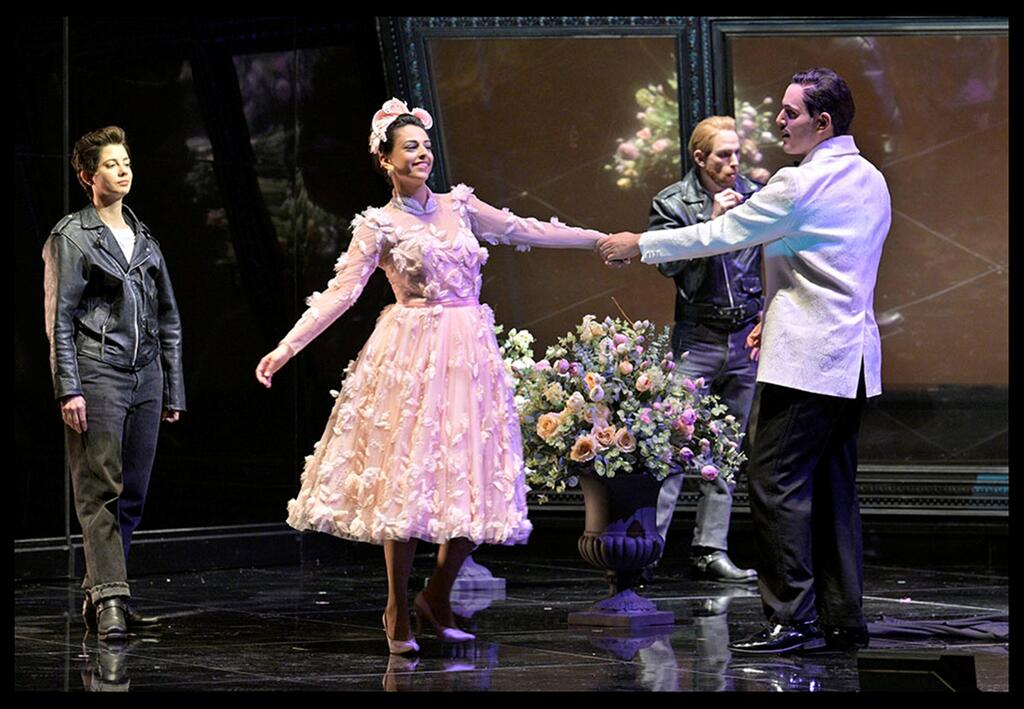The legendary composer George Friderich Handel is a perennial favorite among concertgoers in Israel, who have grown accustomed to hearing his symphonies, concerti and oratorios performed in venues throughout the country.
But his operas ~.or indeed any operas from the baroque era — are very rarely staged. Thus, it was with great anticipation that opera fanciers awaited the extremely brief run — only five performances — of Alcina, an Italian opera composed by Handel in 1735, during his first year spent living in London.
The plot takes place in the magical kingdom of the sorceress Alcina, a place described in the very first aria as one of immense natural beauty, its verdant meadows and forests watered by rippling streams and brooks. Indeed, the cover photo of the program depicts exactly such a scene, presided over by a slender beauty adorned with a crown of leaves.
So it was rather jarring as the curtain rose to reveal a rather bleak indoor setting, with just a strip of lawn seen through windows in the background. Also startling was to see a motorcycle lying in the grass, apparently after skidding in an accident: it turns out that the medieval knights of the original libretto are portrayed in this production as bikers, dressed in black leather jackets and jeans.
And the surprises did not stop there: much of the first scene was taken up by confusing meandering around the stage by women bearing large vases of flowers – but not really transporting them anywhere, just wandering aimlessly until the urns of flowers were replaced equally incomprehensibly by old-fashioned table lamps, also carried circuitously while trying to avoid jumping into the performers in the cast.
Meanwhile, Alcina is hardly the nymph-like beauty portrayed on the program cover: rather, director Ido Ricklin – the dramaturg of the Israeli Opera – chose a diva resembling a portly matron to act the lead role. With the love object of the male lead clad in an unflattering, form-fitting chartreuse floral dress, it was at least easy to understand why Alcina needs to resort to casting a powerful spell in order to cause Ruggiero to fall hopelessly in love with her.
Alcina and Ruggiero headed a cast that is significantly smaller than is typical of most operas: only six singing roles, three men and three women (although Bradamante, Ruggiero’s betrothed, appears onstage disguised as a man, her own brother Ricciardo). They were complemented by a small, largely female, ensemble comprising fewer members than the usual chorus.
Given the small number of performances, and the days of rest in between each one, there was not the usual rotation of two artists alternating in the same leading roles. Rather, the same artist sang the same role each time the curtain rose.
In addition, all the artists except one are accomplished Israeli regulars very familiar to local audiences. The women were soprano Yael Levita in the role of Alcina, mezzo soprano Anat Czarny in the role of Bradamante, and soprano Hila Fahima in the role of Morgana, while two of the men were tenor Eitan Drori in the role of Oronte and baritone Oded Reich in the role of Melisso.
The sole foreign guest artist was Korean counter tenor Vince Yi, in his debut appearance with the Israeli Opera. The original baroque-era casting called for Ruggiero to be sung by a mezzo-soprano castrato, but the contemporary effect is the same, as Yi performed flawlessly with his feminine voice that does indeed take some getting used to, especially in the supposedly macho role of a biker with a ducktail haircut from the 1950s.
The orchestra and conductor are also 100% Israeli, although the former was not the usual Israeli Opera orchestra but rather the Barrocade Orchestra, a specialized permanent ensemble playing authentic baroque instruments. At the podium was Ethan Schmeisser, until very recently the Head of Music and Chorus Master of the Israeli Opera.
The arias in Alcina are all solos – no duets or trios – but beautiful nonetheless, as one might expect from Handel. The only problem is that some of them go on seemingly forever – apparently as was the custom in the 18th century – repeated so often in this performance as well that the surtitles disappear from the monitors.
In spite of the feelings of dissonance that the staging of this production often evoked, there were a few scenes that were well-conceived and unforgettable: the use of video in conjunction with human acting during the near-death breaking of Ruggiero’s spell, and the parade of bare-breasted clones of Bradamante as Ruggiero struggles with his disorientation between reality and illusion.
In general, in fact, sexual activity was more overt in this production than usual – not only the semi-nudity, but the simulated cunnilingus under the skirt and petticoats of Morgana and Bradamante’s seduction of Ruggiero (interrupted by Alcina). One may debate whether any of this was gratuitous, but at least it was straightforward and understandable.
The next opera in the current Israeli Opera season is Verdi’s Aida, which will run from late June through early July.





